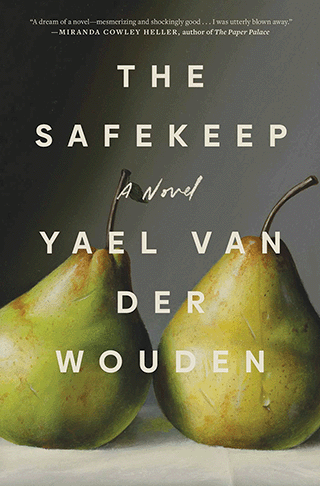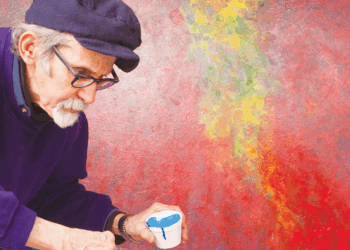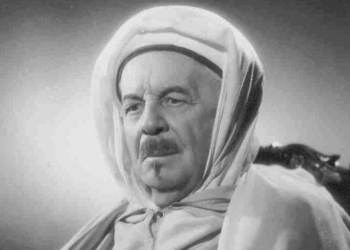Reviewed by NEAL GENDLER
Erroneous first impressions can last a long time.
For example, consider the young woman imposed upon Isabel, upsetting Isabel’s quiet life in a pleasant, nicely furnished country home.
Isabel immediately dislikes her.
It is 1961 in the Netherlands as Isabel and her brother Hendrik wait in a restaurant for their brother Louis. Isabel, annoyed by Louis’ usual tardiness, shows Hendrik a piece of a broken plate she found while gardening. The pattern matches the family’s fine dishes kept in a vitrine.
Louis arrives half an hour late and, also as usual, with a woman, this one named Eva, wearing lipstick Isabel later calls “heart-attack red.”
Eva “had a violently peroxided bob, a badly made dress — the bodice had been sewn on too tight and the hems were messy,” writes Yael van der Wouden in her three-part, brilliant first novel, The Safekeep. “Her face was very red. She was pretty in a way men thought women ought to be pretty.” She seems unsophisticated.
Later, at Isabel’s house, Louis tells her that he must leave town on company business that might be a big opportunity. He intends to leave Eva, who has no family, with Isabel for a few weeks.
Isabel says no. “It’s my house.”
Louis points out that the house really is his, bought fully furnished for their family in 1944 by Uncle Karel, who promised it to Louis should he ever want it.
“Who is she, Louis?” Isabel says. “Where did she come from, do you even know her, how long have you known her, who’s to say she is who she says he is?”
Louis points out that Isabel lives alone — the neighboring maid doesn’t count.
So, Eva moves in, appropriating the bedroom of Isabel’s late mother. Isabel feeds Eva but has almost nothing else to do with her.
“Eva took up space with a loud relentlessness, a bee stuck in a room with all the windows shut,” van der Wouden writes. “She touched things, talked about the things she touched, asked questions about them.”
Isabel, almost 30, seems without friends or interests beyond the garden. Hendrik visits occasionally, and she sometimes visits an older friend of her late mother. She sees the grocer, baker and launderer. She has a suitor, handsome Johan, in whom she isn’t interested.
Isabel is closed in on herself, talking little, revealing almost no emotion and shutting down people’s attempts — especially Eva’s — to draw her into a conversation.
One day Eva asks: “Does nothing bring you joy?” Isabel replies only: “What kind of question is that?”
Isabel notices things are missing. First, it’s one of the good spoons — now 11 instead of 12. A pencil box disappears. She finds a missing silver candle holder beneath a cabinet. “And then, over the course of several days, an engraved cake knife, missing.” Then a decorative tile, a letter opener, a napkin ring, a sewing-kit thimble.
Isabel suspects Neelke, the maid. Hendrik tries to reassure Isabel that things simply get misplaced. But then a yellow egg cup, a paperweight and a children’s book disappear.
Isabel visits Uncle Karel and returns to find Eva and Neelke sharing a bottle of wine, leading to a blowup with Eva, who suggests Isabel let her into her life. “We could talk, we could take walks, wouldn’t that be fun?
Replies Isabel: “I can’t think of anything worse.”
Eva asks: Why are you so determined to dislike me?”
“There’s no determination there,” Isabel says. “I dislike you — quite effortlessly.”
All this is written sparingly, with few physical descriptions, occasionally making me reread parts of conversations to understand who is speaking.
Part two brings change.
One evening, Isabel, Eva, Hendrik and his lover, Sebastian, have dinner, dance to a record — not Isabel, of course — and have too much wine. After the men leave, Eva pushes Isabel against a wall and kisses her.
Despite despising Eva, Isabel discovers she’s sexually attracted, and the feeling appears to be mutual. They become lovers. Always independent Isabel suddenly needs Eva.
Things go well until Louis calls and Eva tells Isabel she’ll be leaving, which she does despite Isabel’s pleading and accusations.
Part three confirms my suspicion almost from the start about Eva, but cleverly continues far beyond anything I could have imagined.
Except for the Hollywood-style ending, this part of the book dazzles with the author’s superb inventiveness and storytelling skill. It’s a masterful twist on an all-too-familiar European Jewish story.
***
Neal Gendler is a Minneapolis writer and editor.
(American Jewish World, October 2024)



















